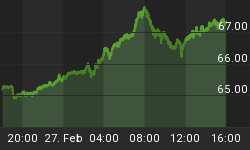CNBC ran an interesting article last Friday entitled, "Lawmakers Take Steps to Protect Gold Investors". The article discussed how politicians are questioning the tactics used by those selling gold, with Rep. Anthony Weiner contending, "The television gold industry is an industry, and is led by one particular company that has built up the industry on fear, lies and rip-offs."
Is it just me, or isn't it perfectly legal to use fear as a tactic to try and sell anything at rip-off prices? As for the suggestion of 'lies' (or fraud), the above article noted that "The FTC said that it has received about 15 complaints" against Goldline. Interesting...
* In what world is 15 complaints over a 4.5 year span touted as a negative?
* Are politicians really trying to protect the 15 individuals that took the time to complain about their dealings with Goldline? Extrapolating the 3.3 complaints versus Goldline per year across the entire precious metals and rare coins industry, you get a total of 16,500 complaints. Is Rep. Weiner really going to great lengths to try and protect 16,500 people?
In short, gold will never be embraced by the government because, in some respects, gold is anti-money and/or anti-government. As for the contention that regulators desperately want dealers to "disclose the reasonable resale value of items being sold", a popular blog recently said it best: "Are Mr. Weiner and Chairman Bernanke also going to agree to print on every dollar the reasonable expectation that its value will be eroded by inflation?"
The Fear Factors
An extended quote from Rep. Weiner (![]() PDF File) is worth considering when thinking about this subject:
PDF File) is worth considering when thinking about this subject:
"Goldline sales representatives aggressively push the sale of numismatic coins (collector) over bullion (pure gold) because the company has the largest profit margin on them and the sales representatives make the largest commission.
The reason given to customers by sales associates for why they should purchase these more expensive coins is often that if the government ever comes to confiscate your gold, they can't take your vintage and collector coins. This is in reference to an overturned executive order issued by FDR in 1933 requiring Americans to sell their gold to the government, with an exception for "gold coins having a recognized special value to collectors of rare and unusual coins," the executive order however did not define special value or collector value, and certainly not collectibles. Nevertheless, telemarketers promoting old U.S. gold coins perpetuate this myth because it makes the selling of high-priced numismatic coins easier".
In other words, the executive order in question didn't make any real distinction between collectibles and pure gold, and anyone who claims otherwise is a liar, liar, pants on fire. Please be sure to remember that back in 1933 the government wanted to steal all your gold!
Thanks for reminding us Mr. Weiner.
To be fair, Mr. Weiner's stats do suggest that Goldline's prices are high compared to many of its competitors. Moreover, it should be noted that from an investment perspective you almost always want to purchase precious metals as close to spot as possible. Nevertheless, do we really need the government to adopt more policies to try and unsuccessfully regulate gold market prices, or should we rely on the ability of investors to make well researched choices?
Incidentally, and although not a scientific reading of prices, at the time of this writing the U.S. Mint was selling 1-oz. Gold American Buffalos for $1560.00 each while Goldline was asking $1,406.00. The sales pitch from the U.S. government reads: "Each coin contains one ounce of .9999 fine, 24-karat gold and is presented in an elegant hardwood box with a matte finish and a faux leather inset. It is accompanied by a certificate of authenticity signed by the Director of the United State Mint."
Not being entirely sure that what an elegant box and signature from the Director of the U.S. mint goes for, the question begs: What is the melt value of this coin Mr. U.S. Government?















